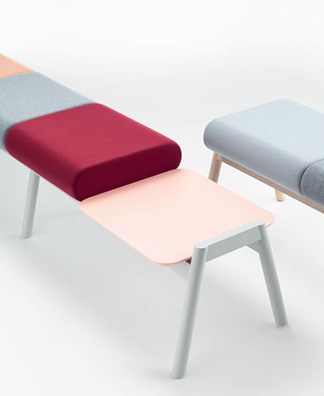Are you looking to refresh your home without spending a fortune? DIY curtains are the perfect solution. Whether you’re after a stylish new look or want to personalise your space, making your curtains can be both affordable and rewarding.
This article explores creative DIY curtain ideas that are easy to execute, budget-friendly, and tailored to your home’s unique style. Get ready to transform your windows with minimal cost and maximum impact!
Why Choose DIY Curtains?
DIY curtains offer a unique opportunity to customise your home décor while staying budget-friendly. Here’s why they’re an excellent choice:
- Cost-Effective Solution: Making your curtains is a budget-friendly option, allowing you to save significantly compared to buying ready-made ones. You can save on labour costs and often use affordable or even repurposed materials, making it a wallet-friendly option.
- Complete Customisation: With DIY curtains, you have the freedom to choose the exact fabric, colour, and design that matches your style. Whether you prefer bold patterns or subtle neutrals, the choice is entirely yours.
- Eco-Friendly and Sustainable: Repurposing old fabrics or upcycling materials like bed sheets or tablecloths reduces waste and promotes sustainability. DIY projects let you give new life to items you already own.
- Beginner-Friendly Creativity: Simple techniques like no-sew methods using fabric glue or iron-on tape make DIY curtains accessible even to beginners. It’s a chance to express your creativity without requiring advanced sewing skills.
- Personalised Touch for Your Home: Handmade curtains add a unique, personal element to your home that store-bought options simply can’t replicate. They reflect your creativity and effort, giving your space a one-of-a-kind charm.
Simple and Budget-Friendly Curtain Ideas
Refreshing your space with new curtains doesn’t need to break the bank. You can make stylish and functional window treatments with creativity and basic materials. Here are a few simple, budget-friendly ideas:
1. Use Basic Cotton or Linen Fabrics
Basic cotton and linen are affordable, versatile fabrics ideal for DIY curtains. These materials are easy to work with, come in various colours and patterns, and offer a clean, natural look.
Their breathability makes them perfect for any room, from living areas to bedrooms, while their light-filtering properties provide just the right amount of privacy and brightness.
2. No-Sew Curtains with Fabric Glue or Iron-On Tape
For a no-sew option, fabric glue or iron-on tape is a fast and straightforward solution. Just apply fabric glue to the hem edges or use iron-on tape to seal folds, saving time and money. This method is perfect for beginners, offering a quick way to create professional-looking curtains without sewing skills.
3. Repurpose Old Sheets or Tablecloths
Old bed sheets or tablecloths can easily be repurposed into stylish curtains with minimal effort. These items are often the perfect size for windows and can be adjusted by cutting to fit and hemming with fabric glue or tape.
This eco-friendly approach saves money and avoids buying new fabric, giving your space a fresh update with items you already have.
4. Create Tie-Dye or Dip-Dye Curtains
Transform plain fabrics into eye-catching, colourful curtains with tie-dye or dip-dye techniques. Use fabric dyes to create unique patterns or gradients that add personality to any room.
This method is budget-friendly, especially when using inexpensive plain fabric, and it’s a fun DIY project that results in vibrant, customised window treatments.
5. Add Decorative Trim to Plain Curtains
Upgrade simple curtains by adding decorative trims such as tassels, pom-poms, or ribbons. Attach these embellishments along the edges or hem using fabric glue or stitching for an elegant touch. This affordable method allows you to personalise existing curtains and refresh their look without the need for new fabric.
Step-by-Step Guide to Making Your Curtains
Making your curtains is an affordable and rewarding way to refresh any room. Here’s a simple guide to help you create custom curtains, even if you’re new to sewing.
1. Measure Your Windows
Start by measuring the width and height of your window. For width, measure across the window frame, then add extra for gathering (around 20-30 cm). For the length, measure from the top of the window to where you want the curtain to fall, adding extra for hems at the top and bottom.
2. Choose Your Fabric
Consider the room’s style and function when choosing fabric for your DIY curtains. Light fabrics like cotton, linen, or voile are affordable, accessible to work with, and perfect for creating an airy, casual look. For a more luxurious or formal feel, opt for heavier fabrics like velvet or canvas. These materials add richness and elegance, making them ideal for spaces that need a more refined touch.
3. Cut the Fabric
Cut the fabric according to your measurements, ensuring patterns are aligned correctly. Always double-check your dimensions before cutting to avoid mistakes and ensure a perfect fit.
4. Create the Hems
To create the hems, fold the top of the fabric by 7-10 cm to form a rod pocket, then fold the sides and bottom by 1.5 cm. Iron the folds flat and secure them with either sewing or fabric glue. This simple process ensures clean, professional-looking hems for your curtains.
5. Hang Your Curtains
Finally, slide your curtains onto the rod and hang them. Adjust for evenness, and add tiebacks or other decorative details for a polished look.
Creative Ways to Hang Your DIY Curtains
Hanging your curtains doesn’t have to follow the traditional route of curtain rods. Several creative, budget-friendly alternatives can add style and personality to your space. Here are a few unique options:
1. Tension Rods
Tension rods are an easy, affordable solution, perfect for small spaces or rental properties where drilling isn’t possible.
Simply adjust the rod to fit your window and place it between the walls. Ideal for lightweight fabrics, tension rods are quick to install and remove without causing damage, making them an excellent option for temporary setups or non-standard window sizes.
2. Repurposed Wooden Dowels
Wooden dowels make a great choice for a rustic or industrial look. Easily found at craft stores or repurposed from old furniture, they can be cut to size and hung with brackets or ropes.
The natural wood adds warmth and character, making it perfect for farmhouse or natural décor. You can also stain or paint the dowel to customise it and match your style.
3. Copper Pipe Rods
Copper pipes offer a sleek, industrial look for curtains, adding an elegant touch to modern or loft-style interiors. Most hardware stores sell these pipes cut to size and mounted with brackets. Durable and sturdy, copper provides functional support and enhances any room’s character with its contemporary finish.
Curtain Styles to Suit Every Room
Curtains add style to a room and serve functional purposes, such as controlling light, enhancing privacy, and providing insulation. Here are some curtain styles to suit different spaces in your home:
1. Sheer Curtains for a Light, Airy Feel
Sheer curtains are perfect for bright, airy spaces where you want to maintain natural light but still have some privacy. They work well in living, dining, or sunrooms, offering a soft, delicate look. Sheer curtains can also be layered with heavier drapes for flexibility in controlling light and privacy.
2. Blackout Curtains for Full Privacy and Light Control
For rooms where privacy and light-blocking are essential, such as bedrooms or home theatres, blackout curtains are a top choice. These curtains block out most light and reduce noise, ensuring a restful environment.
3. Cafe-style curtains for a Casual, Vintage Look
Cafe-style curtains cover only the lower half of the window, offering privacy while allowing light to enter the top portion. These are ideal for kitchens, bathrooms, or smaller spaces where you want a relaxed, vintage aesthetic.
How to Choose the Right Fabric for Your Curtains
Selecting the right fabric is key to achieving the perfect look and functionality for your curtains. Here’s a quick guide to help you make the best choice:
- Consider the Purpose: Determine what you want your curtains to achieve—privacy, light control, insulation, or purely decorative purposes. For privacy and insulation, heavier fabrics like velvet or blackout materials work well, while lighter fabrics like voile or sheer cotton are ideal for adding softness without blocking too much light.
- Match the Fabric to the Room’s Style: The fabric should complement your room’s décor. For a minimalist or modern space, opt for lightweight, simple fabrics like linen or cotton in neutral tones. For traditional or luxurious settings, rich materials like silk or brocade add a touch of elegance.
- Evaluate Light and Privacy Needs: Different rooms have varying requirements for light and privacy. Bedrooms might benefit from heavy fabrics to block light, while living areas may require light-filtering options like linen or polyester blends.
- Think About Durability and Maintenance: Choose fabrics that suit your lifestyle. Polyester and blends are low-maintenance and durable, making them great for high-traffic areas or homes with kids and pets. Delicate fabrics like silk, while beautiful, require more care and may not be as practical for everyday use.
- Test the Fabric’s Drape: How a fabric hangs can significantly impact its appearance. Before making a decision, test the fabric by holding it up to see how it drapes and folds. Heavier fabrics create structured folds, while lightweight ones fall more loosely.
Conclusion
DIY curtains offer a fantastic way to refresh your home on a budget while adding a personal touch to your space. With endless fabric options and creative techniques, you can customise your window treatments to suit your style and needs. Ready to get started? Explore our DIY curtain ideas today and transform your home effortlessly!


